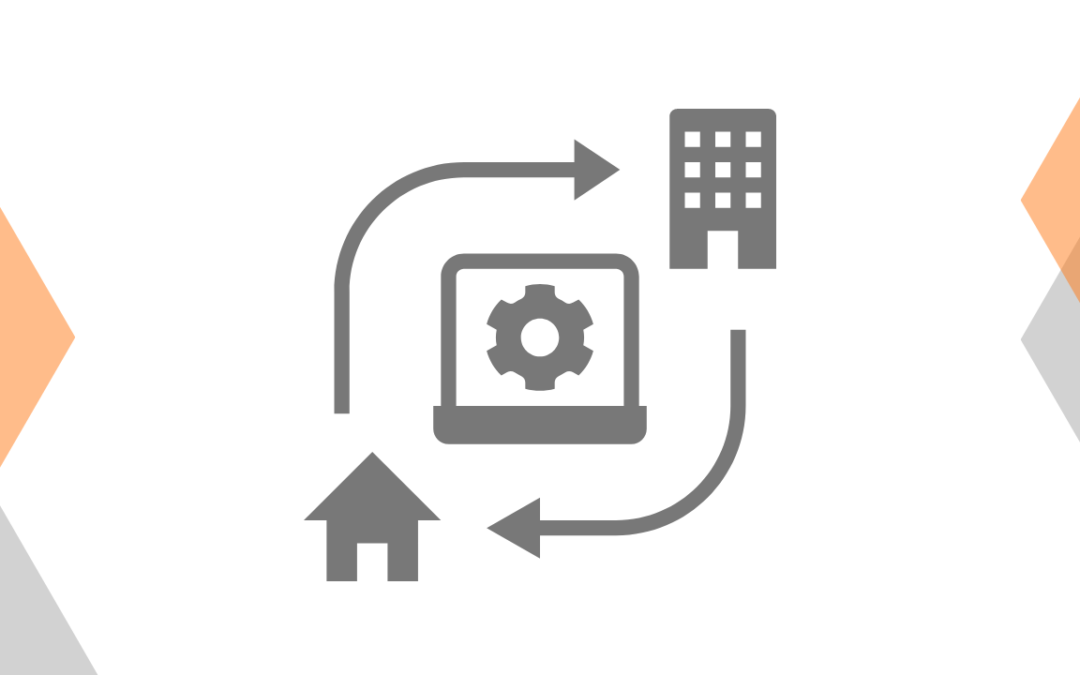Hybrid work - the new trend of 2023
Hybrid work is gaining popularity, becoming one of the key trends in 2023. Many employers are abandoning full remote work in favor of a hybrid model, where employees split their time between the office and home. While some may be reluctant to return to the office, there are numerous benefits to this work model. In this article, we'll take a look at the reasons why companies are choosing hybrid work and the challenges such a shift presents. In an era of digitization and globalization, hybrid work offers flexibility. It meets the needs of both employers and employees, enabling a more balanced and productive work style.
Why is remote work not always ideal?
While remote work has brought many benefits, such as flexibility and saving time on commuting, it also has its drawbacks. The lack of direct interaction between employer and employee can lead to trust issues. Often, employers wonder whether their employees are actually working or just wasting time. Additionally, remote work can cause technical problems, such as lack of internet access or equipment failures. Lack of interaction with colleagues can lead to feelings of isolation, and time zone differences can complicate communication in international teams. As a result, many companies are considering a hybrid model that would combine the benefits of remote work with the advantages of working in the office.
Challenges of working remotely and how to overcome them
Managing a team working remotely can be a challenge. Lack of trust, communication problems and a sense of isolation are just some of the problems employers may face. To effectively manage a remote team, employers need to put clear procedures and tools in place to help with communication and collaboration. Information security is also key, and employers need to ensure they have the right policies and tools in place to protect company data. Introducing regular online meetings, using advanced project management tools and cyber security training are just some of the ways that can help companies effectively manage remote work. However, hybrid work can be the answer to many of these challenges, offering a balance between remote work and traditional office work.
Is remote work really a thing of the past?
Although we are seeing a bit of a trend away from remote work, that doesn't mean it is completely a thing of the past. Many companies are still offering this option, recognizing its benefits, such as increased productivity and better employee well-being. Companies that introduced remote work because of the pandemic often return to the hybrid model, while those that offered the option before are still using it. It is important for companies to adapt to the changing needs and expectations of their employees, and hybrid work can be one way to achieve this by combining the benefits of both work models.
Hybrid work as a compromise
Hybrid working can be an ideal solution for companies that want to combine the benefits of remote working with the traditional office model. It gives employees flexibility and the ability to customize their work hours, while giving employers more control over their team's work. The key is communication and adjusting the work model to meet the needs of both employer and employees. Introducing regular meetings, both virtual and in the office, and clear guidelines on expectations can help strike a balance and ensure that hybrid work benefits all parties.
Summary
Hybrid work is becoming increasingly popular and there are many indications that it will dominate the business landscape in 2023. Companies that want to attract the best talent and meet the needs of their employees should consider implementing this work model. It combines the benefits of remote work with the traditional office model. In doing so, it offers flexibility, efficiency and sustainability. In the digital age, where technology makes it possible to work from anywhere. It is hybrid work that could be the key to success for many organizations.
Fast Forward Solutions - Your source for the best professionals
Fast Forward Solutions specializes in recruitment services in the areas of IT, e-commerce, sales and marketing. Our rigorous methodology combines role profiling, executive search and candidate assessment, supported by consulting services. As a result, we guarantee efficiency and rapid acquisition of the best talent on the market. With our support, any company can increase sales, reduce operating costs, improve the efficiency of human resources management and strengthen investor confidence.
About the author: Tomasz Bożyczko
Tomasz Bożyczko is an experienced leader in managing marketing and sales teams, President and Founder of Fast Forward Solutions. His passion for recruiting and developing teams has contributed to the success of many organizations. Tomasz is an expert in hiring top talent and improving recruitment processes.
We hope these tips will help you create compelling job opportunities and optimize your recruitment process to attract the most valuable employees for your company.


Latest comments